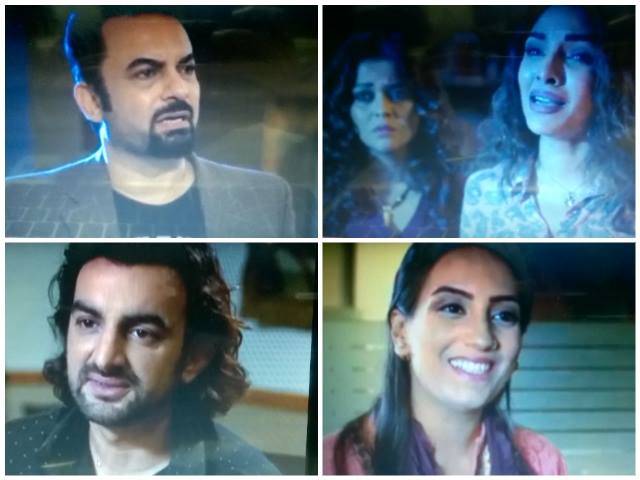‘And this same flower that smiles today,
Tomorrow will be dying’ - Robert Herrick
The flower will die. The time will fly away. Death will come to take people in its arms and carry them to the heavens. We do know that death is inevitable. The only difficulty is that we do not know the time of its arrival. The pen with which the fourth episode of mystery series Dhund has been written tries to understand the emotions of the people with whom death plays like a ‘subtle thief’ if we talk in the terms of Milton. We do believe that it has to take over us and that we have to be prepared for it at any moment, but what about those who love so much that they are not ready to be rendered asunder from the ones they hold dear to themselves? What about those mothers who cannot leave their infants alone on the earth, but have to surrender to death? Or what about those children who are the only support for their parents, but have to leave them when death knocks at their door?
‘Agar zindagi ke yeh maaini hain, ke har mor pe koi apna kho jaaye, tou mujhe aise maaini nahi chahiyen……………. Nazar tou koi nahi aata……. Na hee tasalli deta hai.’ - Haseena Moin (The Castle; Aik Umeed)
As far as emotions are concerned, this episode of Dhund turns out to be the most beautiful one, both in scripting and direction. It talks about people who do not want to leave their loved ones, but have to surrender. Maria’s friend Erum (Zhalay Sarhadi) has grown a widow as the result of her husband (Noman Masood) Nomi’s death in a sea accident. Since both have loved each other, the parting is difficult to handle, for neither Nomi’s ghost is willing to leave the house where his widow still dwells, neither Erum is able to give clear answers to her new marriage proposal presented by Kashif (Fahad Rehmani) who after the death of Erum’s husband has started to make frequent visits to the house, bringing movie tickets and bouquets along.
It is interesting as well as dazzling how it is in the end that we realize that it is a loving ghost who wishes to talk to his wife, who might be wanting to come to terms after the death, have a last conversation or say a good farewell, but is completely helpless, for being dead, he cannot be listened to. It is, however, with Maria’s powers of necromancy that he is able to tell what complaints he has from his widow, who has started to accept flowers from another man and has not confidently rejected the marriage proposal. Nomi has been a loving husband. The fact that Erum is wailing just to see a glimpse of her husband tells that she equally loved him, but her unassertive refusal to the marriage proposal does not make her a betrayer or a duplicitous woman. This is a problem discussed in a lighter mode. People who are left alone after their loved ones leave the world do have to bring themselves in conciliation with the bitter reality, and have to keep living after all. They may bring someone into their lives, or find a good company, but in no way give us the right to judge their character or point a finger at their loyalty. The initial scenes do create a tendency in the viewers to accuse Erum of dishonesty, but her yearning in the last scene to see her husband’s figure make us realize that neither she is a corrupt woman, nor did she want her husband to leave. It is just that she is going through mazes and is not sure about what to do and how to live after her husband’s death.
The fact that the loving husband who wants to say a few, last words keeps roaming around the house inclines us to link this episode with the second one as well, in which a doting father was not ready to leave his daughter and therefore kept an eye on her even after passing away. Like he went to the heavens, leaving a good message for his daughter, Nomi too learns that he is no more on the advice of Maria and that his presence will create problems and fears for his wife. His tear falling on his wife’s hand when he is about to leave forever comes out as a beautiful moment in the episode. It seems to be a token of love, just like the slight touch of the hand when Sania Saeed, in the 1999 drama serial Zaibunnisa written by Azra Baber and directed by Sahira Kazmi, is about to leave Nida Kazmi so that the latter may start living on her own.
This episode is completely flawless as compared to the previous ones, for not only each and every actor chosen for it is mature and veteran, but the direction and the setting also continue to attract throughout the episode. Every house, every corner selected for the shooting seems to have been selected using aesthetic sense. In every episode, Farrukh Faiz creates a scene that makes itself memorable. This time, it was the one in which Maria lights a candle and the ghost comes walking towards her. The beauty of the play lies in the aspect that Maria is not an evil necromancer who talks to the dead for her benefits or exploits them for a better life. Whatever she does is for the welfare of other people, making the character a good person at heart. One is also stimulated to think that it is Waqas' curse from the first episode that causes her to listen to everyone now, so she may find her lost son in a hale and hearty condition.
Since we know Mohammed Ahmed for his light, humorous plays, this play keeps reminding us that it is the same hilarious writer behind Dhund by incorporating comic scenes. This time, Kashif’s colleague (Kehkashan Faisal) adds to the comic element of the play through her witty dialogues and natural and casual manner of talking. Fahad Rehmani’s Urdu dialogue delivery does sound a bit emotionless at times, but his heroic charm and excellent pronunciation of English language deserve laudatory comments. Zahida Batool as Nasreen and Zeeshan Liaqat as Sattar are coming forward as excellent actors who can perform a variety of roles.
Dhund is not a series the mysteries of which are related to abandoned houses or unrealistic horrifying figures. The mysteries are those related to real life about which we do think, but do not care to solve. It is commendable, how in this play, ‘death’ has been chosen as the subject and is being looked at from a different perspective in every episode.






